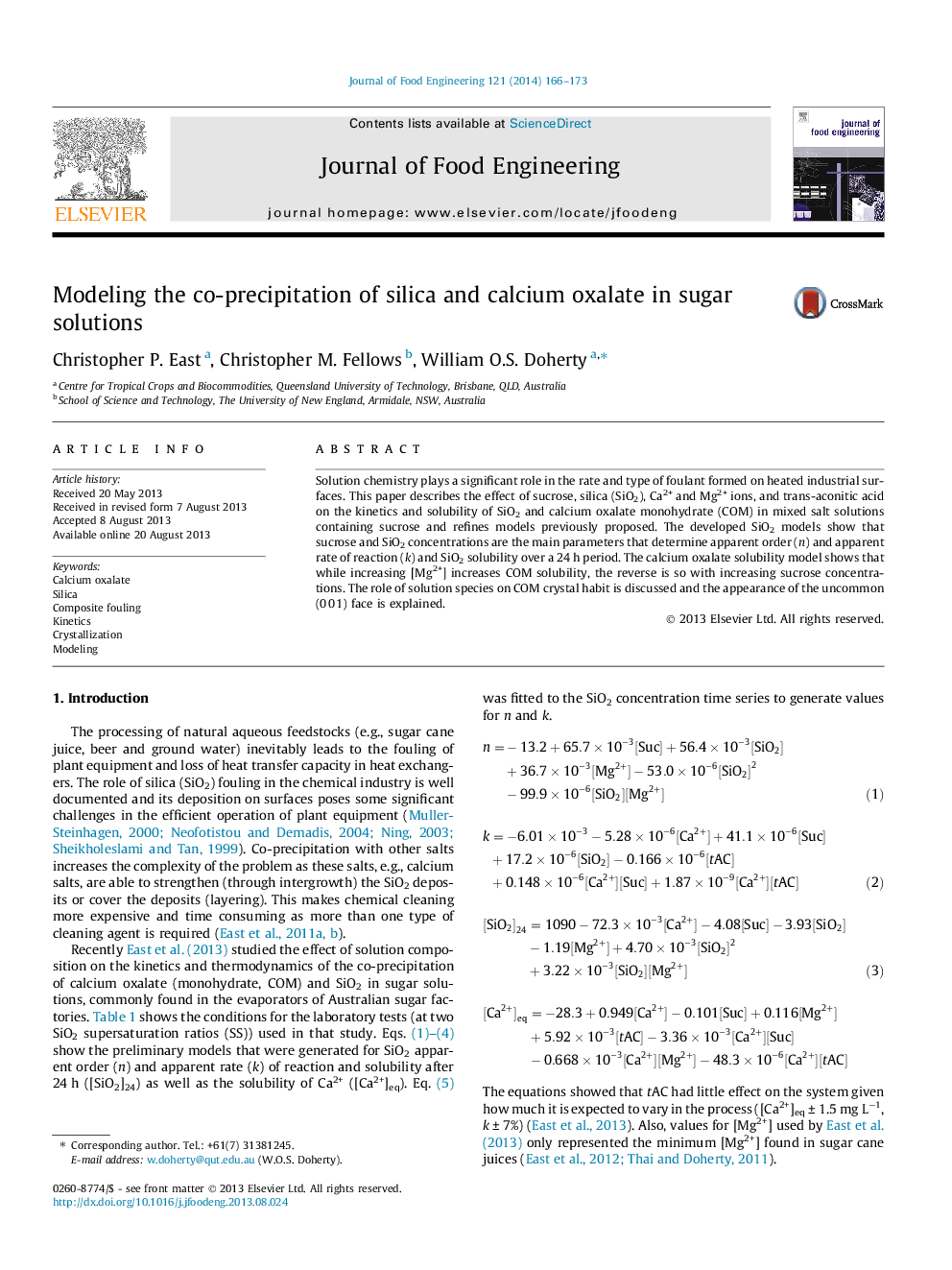| Article ID | Journal | Published Year | Pages | File Type |
|---|---|---|---|---|
| 6666116 | Journal of Food Engineering | 2014 | 8 Pages |
Abstract
Solution chemistry plays a significant role in the rate and type of foulant formed on heated industrial surfaces. This paper describes the effect of sucrose, silica (SiO2), Ca2+ and Mg2+ ions, and trans-aconitic acid on the kinetics and solubility of SiO2 and calcium oxalate monohydrate (COM) in mixed salt solutions containing sucrose and refines models previously proposed. The developed SiO2 models show that sucrose and SiO2 concentrations are the main parameters that determine apparent order (n) and apparent rate of reaction (k) and SiO2 solubility over a 24Â h period. The calcium oxalate solubility model shows that while increasing [Mg2+] increases COM solubility, the reverse is so with increasing sucrose concentrations. The role of solution species on COM crystal habit is discussed and the appearance of the uncommon (0Â 0Â 1) face is explained.
Related Topics
Physical Sciences and Engineering
Chemical Engineering
Chemical Engineering (General)
Authors
Christopher P. East, Christopher M. Fellows, William O.S. Doherty,
